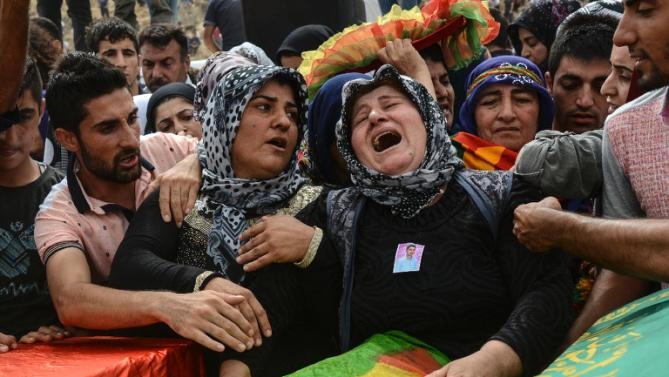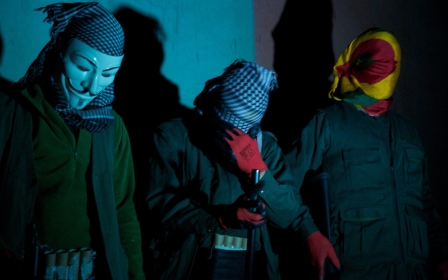Two girls killed following clashes in southeast Turkey

Two girls were killed and four people wounded on Sunday following clashes between police and Kurdish militants.
According to the Turkish police, supporters of the Kurdistan Workers' Party (PKK) launched rockets at a passing armoured police vehicle in the Bismil district of the Kurdish majority Diyarbakir province.
But the rockets missed their intended target and hit a three-story house, killing the girls, aged nine and 12.
However, Kurdish activists have blamed the Turkish security services, claiming that a bomb was fired by police into the house.
The Turkish government has been waging an offensive against PKK strongholds in the southeast and in neighbouring northern Iraq since July, after the PKK assassinated two police officers.
In response the group - blacklisted as a terrorist organisation by Turkey and much of the international community - has launched bloody attacks on security forces.
Clashes between the Turkish state and Kurdish activists have left over 150 Turkish security officials dead.
Violence in the town of Cizre between the pro-PKK Patriotic Revolutionary Youth Movement (YDG-H) and Turkish forces have resulted in the deaths of 23 civilians, according to Kurdish activist sources.
The army announced on Sunday that its warplanes pounded PKK bases in the Metina region of northern Iraq.
The Turkish army claims to so far have killed more than 1,000 PKK fighters in the Qandil mountains in Iraq, though the group claims those figures are dramatically overstated.
The spike in violence between Kurdish militants and Turkish security forces since July has left a two-year ceasefire in tatters.
Over 40,000 people have been killed since the PKK took up arms in 1984 demanding an independent state for Kurds. Since then the group has narrowed its demands to greater autonomy and cultural rights.
New MEE newsletter: Jerusalem Dispatch
Sign up to get the latest insights and analysis on Israel-Palestine, alongside Turkey Unpacked and other MEE newsletters
Middle East Eye delivers independent and unrivalled coverage and analysis of the Middle East, North Africa and beyond. To learn more about republishing this content and the associated fees, please fill out this form. More about MEE can be found here.




